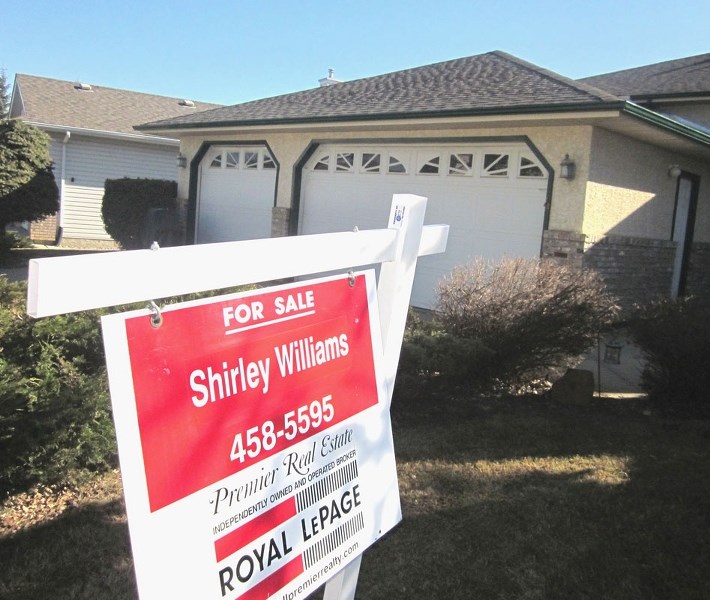Housing sales in the Edmonton region are expected to continue at a slower and more cautious pace in 2015. But they will remain strong, despite falling oil prices, said Geneva Tetreault, newly-elected president of the Realtors Association of Edmonton.
Tetreault spoke at the association's annual housing forecast seminar on Wednesday.
She said the housing market in Edmonton cannot escape the effects of a slowdown in the economy, with oil prices falling below $50 US this week. But the region has good projections for continued migration and offers affordable housing prices well below other cities and the national average.
"Yes, we expect the drop in oil prices to slope down the current rate of sales," she said. "We expect buyers to be cautious but to take advantage of the current low mortgage rates."
Sales of single-family homes are forecasted to remain at similar levels as in 2014, with the association forecasting a 3.5 per cent increase in prices. Last year, the average price for a single-family home was $432,713.
Condo, duplex and row house sales are expected to increase by a slight 2.5 per cent this year, due to a number of new units hitting the market.
But condos, duplex and row houses continue to be high sellers on the market. They are affected by a limited and pricey rental market, and sell largely to newcomers and baby boomers, said Tetreault.
Prices for condos are forecasted to increase by 2.5 per cent, from $252,175 in 2014.
Tetreault added that, compared to other housing markets in Canada, the Edmonton region continues to sell homes to buyers here, not foreign investors. There are also many exciting projects moving forward in and around Edmonton in 2015 that continue to attract people, she said.
"Edmonton is still one of the best places in Canada to trade real estate," she said. "We still have a lot to be excited about."
Economic outlook
Oil prices will affect the Alberta economy, and subsequently the housing market. But Todd Hirsch, ATB Financial senior economist, is positive that oil prices should return to about $75 US a barrel by the end of the year.
"I don't think we are in for a long period of low prices," he said.
There are benefits to lower oil prices, he added.
Other industries, such as the forestry, tourism and agricultural sector, will have an easier time competing for employees with the oil and gas industry. And the export market in Alberta also benefits from lower transportation costs, he said.
He does expect companies will lay off workers in the first half of the year. That means the unemployment rate may rise by about one per cent, to 5.4 per cent. That's still below the national average, he said.
In-migration to the province is expected to slow in 2015. But Hirsch agreed that low mortgage lending rates continue to attract new home-buyers. And interest rates are not expected to rise within the next six months, he said.
"The first half of 2015 is going to feel a little rocky. The good news is all of this is quite temporary," he said. "I would call it a rebalancing of the labour market and Alberta's economy in 2015."
The Canada Mortgage and Housing Association's forecast was in line with the Realtor Association's. Senior market analyst Christina Butchart said they expect slower growth in 2015 and 2016, with a slower pace in sales than in 2014.




